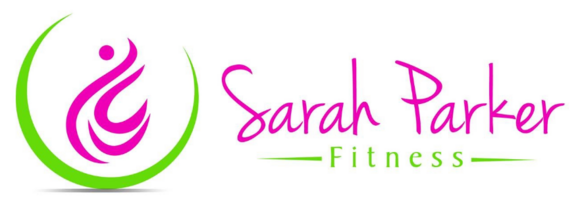This month is Prolapse Awareness month, a subject that's quite important to me and has definitely contributed to where I am today and what I do
When you first get diagnosed with a prolapse it often makes you question why it happened and what it was you did to make it happen
Then you start to miss out all the things that may have been the reason for it, or could make it worse
And then you think about strengthening the pelvic floor
I went through all these things - I blamed exercise first and fell a little bit out of love with conventional exercise. A bit of a problem when you are an exercise instructor!!
Conventional wisdom was that you stop doing abdominal work, high impact, weight training and squats
I didn't care about ab work and high impact very much. But there was no way I wasn't going to do squats or strength train
What I did care about was that some of these things also impacted how I played with my children - I stopped carrying them as they got heavier and I never ran or skipped with them. These are the only things I really regret
I was told to do pelvic floor lifts - but when I saw the pelvic floor nurse she said my pelvic floor was strong. So why did I prolapse?
I was also told I would need a hysterectomy by the time I hit menopause - the thought being that my prolapse would just continue to worsen and the changes that come with menopause would be the final straw
I am not one to take medicine if I can help it and would rather make lifestyle changes where possible. I was certainly going to do my best to avoid surgery! So I started researching ways to not just stop my prolapse getting worse but if there was a way to make things better
Weirdly, the first thing I found was the connection between feet and the pelvic floor!
I have worn barefoot shoes ever since and regularly work on my foot health
The next thing I found was Hypopressives - but I was a bit dubious about it. So it took another 14 years before I actually went for it and learnt the technique!
And I'm so glad I did!
I felt an immediate response of feeling lighter
By practising regularly I strengthened my core and pelvic floor, felt no symptoms and can happily run, jump and lift heavy without any fear
Everything I learnt I have tried to share with others too:
- the one thing that most people with prolapse have in common is pregnancy. So in my pregnancy classes I include exercises that help to relax the pelvic floor and get more balanced movement around the whole pelvis. Being able to let the pelvic floor yield and not tense up is key to less strain and damage!
- postnatally I want to help women get back their fitness gradually. There is still an emphasis on bouncing back and getting your body back. This mindset makes women more likely to do too much too soon whilst they're still healing
- pelvic floor health isn't just about the pelvic floor muscles. As well as the connection to the feet, there is a connection to the jaw. Tightness in the upper body can impact, as can tightness from scars. Imbalances from the way we stand, sit and exercise. So if there are lots of things that can contribute to pelvic floor health, how can the solution be just to do kegels? So all my core and pelvic floor courses target the whole body
There has been more research since I prolapsed
NICE recommendations are not kegels first, but actually using a pessary is - something that was never once mentioned to me. Pessaries can support you, especially whilst exercising, and can sometimes even lead to an improvement in the grade of prolapse!
Recent research has shown that exercise is not contra-indicated. And in fact, being sedentary is more of a risk of symptoms than moderate exercise. So I'm so glad I decided to keep going
My diagnosis was 20 years ago
And I'm heading towards menopause with no sign of a hysterectomy being on the cards
So one of the main things I want to say is that there is hope and that there can be change for the positive
In some way, I'm even grateful for my prolapse...
All the things I learnt and put into practice because of it are things that stand me in good stead as I head into menopause
Pelvic floor issues are more prevalent, especially from the age of 60-65
But my pelvic floor is stronger than ever
The brain changes that happen during menopause can lead to anxiety and depression. So it helps to have a system of stress relief techniques in place - such as mindful stretching, slow breathing
This I get from Hypopressives
- The slow breathing helps you to relax and can aid more restful sleep
- The breath holds help the body utilise more of the available oxygen (meaning less fatigue and less brain fog) and can help you breathe more easily
- The technique improves your core alongside your pelvic floor - I have never been able to do a full press up until now!
- The poses help you stretch and can improve back pain and shoulder stability plus they feel great!
Even better, you only need to do a small amount to get results
Here's what a few of my clients have to say

Comments